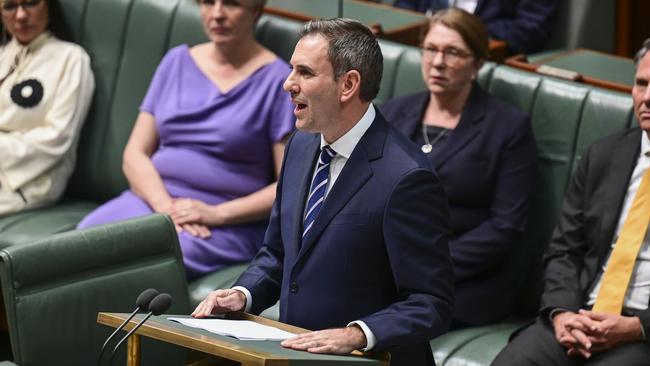Federal budget 2023: Universities give tepid welcome to a budget light on education
Universities gave a tepid welcome to the federal budget, which was light on new measures for higher education, but place hopes on the Accord.

Universities gave a tepid welcome to the federal budget, which was light on new measures for higher education, but are hoping for solid policy proposals for the sector in the imminent Universities Accord review.
The biggest higher education announcement in the budget, delivered on Tuesday by Treasurer Jim Chalmers, was $127.3m to be spent across the next four years for an extra 4000 students to get degrees in STEM (science, technology, engineering and maths) and management fields to boost the skilled workforce Australia needs for the AUKUS nuclear submarine program.
The government also will spend $50.2m across four years for registered nurses and midwives to do postgraduate study to improve their skills.
While disappointed by the lack of new support for research, university groups welcomed the focus on easing cost-of-living pressures – including higher living support for students – and fiscal repair.
But Universities Australia chief executive Catriona Jackson reminded the government that universities were critical in building economic strength. “Universities are key economic drivers, through the provision of skilled workers and new ideas, research and development, and have a vital role to play,” she said.
Group of Eight chief executive Vicki Thomson said the 4000 new AUKUS-linked student places were “an important first step in a process that will require a future focus on research to deliver the advanced capabilities of AUKUS pillar two” – which is the joint research effort, alongside the US and Britain, into new defence technologies.
Australian Academy of Science president Chennupati Jagadish said his group welcomed the ongoing support for science and research, “however Australia’s overall investment in science remains lamentable”.
Australian Technology Network of Universities chair Harlene Hayne said “it was pleasing to see key investment in areas of teaching, nursing, psychology and early childhood education which are currently in critical shortage. This will go a long way to ensure that Australia has an adequate supply of these much needed skills.”
Many universities expected the budget to have few higher education initiatives given that the government is well into a major review of the sector being carried out by its Universities Accord panel, chaired by former NSW chief scientist Mary O’Kane.
“We expected most issues relating to higher education would be dealt with through the Accord,” said Paul Harris, executive director of the seven-member-strong Innovative Research Universities group. “We see the need for broader reform as we work through the Accord process.”
Mr Harris welcomed the decision to improve student welfare by increasing the Youth Allowance, Austudy and ABSTUDY, which many students are eligible for. The base rate of these payments will increase by $40 a fortnight from September 20. “That’s a good step,” he said.
However, National Union of Students president Bailey Riley labelled the boost to allowances as “crumbs” that left young Australians below the poverty line.




To join the conversation, please log in. Don't have an account? Register
Join the conversation, you are commenting as Logout